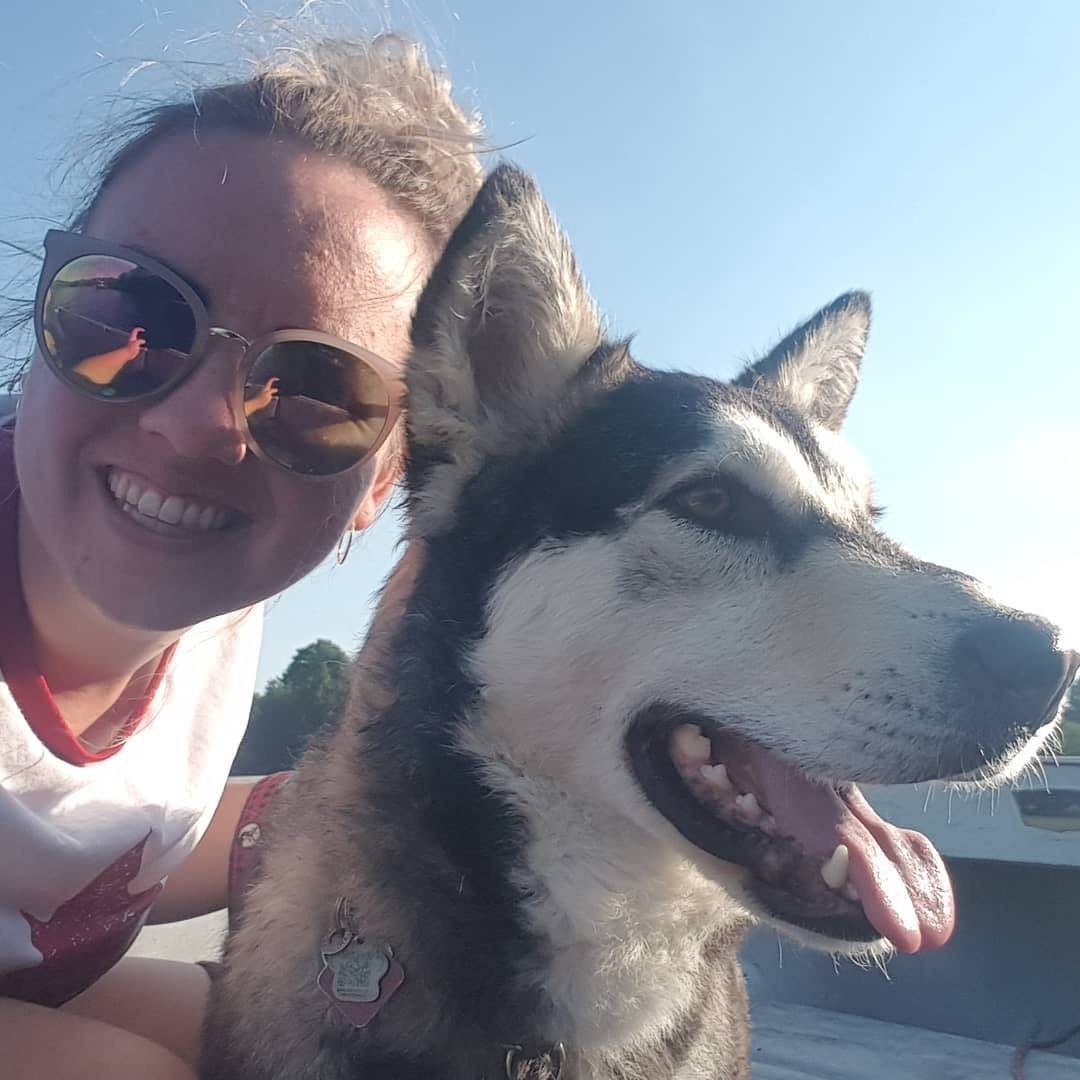It’s normal for dogs to whine occasionally, but it can be frustrating if you’re not sure what’s causing it.
And if your dog is always whining, it likely means that there’s a deeper problem.
Below, I’ll walk you through the most common reasons why dogs whine and what you can do to help.
Why Is My Dog Whining? 5 Reasons
Dogs whine for a number of reasons. But while some reasons are no cause for concern, others could be a symptom of a bigger health issue.
Here are five of the most common reasons why dogs whine:
1. Attention
First up, attention-seeking. You’ve probably noticed that most dogs are super social and love attention.
If your dog is whining, it could simply be his way of telling you he wants your attention. Sometimes dogs will whine when they see you, just out of sheer excitement.
As long as this whining isn’t happening all the time, it’s probably nothing to worry about. Just be careful about responding to your dog’s whining every time, because he might start to think that it’s the only way to get what he wants.
2. Fear Or Anxiety
Another reason your pup might be whining is anxiety or fear. Oftentimes this is due to something like separation anxiety, which is triggered when a dog is separated from his owner.
Separation anxiety can be triggered within minutes of separation, or even before you leave the house. So if you hear your dog whining shortly after leaving him in the car or house, it’s likely a case of separation anxiety.
If your dog is hiding or cowering while he whines, though, then it means he could be scared of something else in his environment. Creating a safe space, like a cozy crate or room, can help your dog feel more comfortable and less anxious. Or you could try bringing him a treat or his favorite toy.
RELATED: How to calm dog anxiety naturally …
3. Pain Or Discomfort
Whining can also be a sign of pain or discomfort. If your dog is whining while limping or nursing an injury, or he has changes in appetite or energy levels, it’s important to find out the reason. You may need to have your vet examine him.
Aside from injuries, there are a bunch of other reasons for pain and discomfort in dogs, but some of the most common ones to keep an eye out for include:
- Arthritis
- Dental problems
- Gastrointestinal issues (constipation, diarrhea, etc)
- Urinary tract infections
- Ear infections
- Skin irritations or infections
4. Boredom
If dogs aren’t kept busy, they can get bored and whine out of frustration. This may happen when your dog is home alone … or even if you’re there and busy with other things. Dogs need physical and mental activity, such as walks or playing games, especially young dogs who don’t need much sleep during the day. So if your dog has to spend all day lying quietly waiting for you to do something with him, he may express his boredom by whining.
If your dog is only whining when he’s bored and home alone, you may not even know about it. You may have to rely on your neighbors complaining that your dog regularly barks or whines when you’re not around … in which case, it likely means he’s bored or lonely.
To prevent boredom, make sure your dog gets plenty of physical and mental activity. Walks, playdates with his friends, trips to the park, playing games, interactive toys, recreational bones or even going with you on an errand in the car, are a few things that can help.
If your dog is going to be alone for a long time, consider hiring a dog walker or pet sitter to give your pup someone to play with when you’re not around. Or drop him off at doggie daycare as long as you’re comfortable with him around a bunch of other dogs. Either way, he’ll be sure to benefit from the extra exercise and mental stimulation.
5. Age
Lastly, if you have an older dog, he may be whining due to age-related cognitive decline or hearing loss. Your senior dog may be disoriented or in pain. You may need your vet’s help to figure out the problem. If he’s suffering from cognitive dysfunction, supplements like lion’s mane mushroom or CBD oil can often help.
RELATED: Helpful diet for doggy dementia …
Why Is My Dog Whining At Night?
Dogs may whine at night because they need to go outside to pee or poop, or because they’re experiencing anxiety for some other reason. So if you’ve ever asked “why is my dog whining at night?” – these are the two most likely culprits.
If your dog is whining because he needs to go out, he’ll probably let you know by waiting at the door or running to the door when you get up.
If your dog is whining at night because of anxiety, it could be separation anxiety if he doesn’t sleep in your room, or if he’s older, senior dogs may feel disoriented at night, especially if they have some dementia or are losing sight or hearing.
Should You Ignore A Whining Dog?
Some dog trainers and behaviorists recommend ignoring a dog’s whining to discourage the behavior, but others argue that ignoring a dog can lead to increased anxiety and stress.
The answer is, it depends on the cause of your dog’s whining.
If your dog is whining for attention – it’s best not to reward the behavior by giving him attention. Instead, wait until he’s stopped whining before giving him attention. Over time, this will teach your dog that there are other ways to get what he wants.
If your dog is whining due to anxiety or fear – don’t ignore him asking you for help. Provide comfort and reassurance to your dog. You can do this by using a calm and soothing voice and providing physical contact, like petting, massage, or just holding him.
These are general guidelines. Each dog is unique, and what works for one may not work for another.
How To Stop Your Dog Whining
If your pup’s whining is becoming a bit of a nuisance, don’t worry – there are a few ways to help manage his behavior.
Here’s how to stop your dog from whining:
- Determine the cause: First you’ll need to figure out what’s causing it. Is your dog bored? Anxious? In pain? Revisit the list above and some of the common signs of each issue to find the underlying reason for the whining. Then you can start taking steps to address it.
- Don’t reinforce the whining: If you often find your dog whining for attention, don’t give in and reward the behavior every time. Wait until he’s stopped whining before giving him any attention.
- Rule out pain or illness: if your dog’s whining due to pain or discomfort, try to figure out what’s causing it. Your vet can help you if necessary.
- Give him exercise and mental stimulation: Exercise and mental stimulation are great for keeping dogs happy and healthy. Try going on regular walks or outings, playing games, or provide recreational bones or a stuffed Kong or puzzle toys to keep your pup entertained.
- Get professional help: If your dog’s whining is severe or persistent, it may be time to call in a pro. A dog trainer or animal behaviorist can help you figure out what’s going on help you manage the whining.
Bottom Line
Whining is a common behavior in dogs, but you need to understand the underlying reason behind the dog whining before you can stop it.












